According to the buildfire resource, today, 2,000,000 applications are registered in the AppStore and 3,000,000 in the PlayMarket! The share of mobile games is not so great: it does not even take up half of the total. Modern mobile applications help users to solve certain tasks, and businesses to automate processes.
What are the tasks and goals of the mobile app?
- additional branding,
- attracting existing and new target audience,
- a tool for entertainment, sometimes with elements of native self-promotion,
- additional sales (for example, a discount on goods for those customers who order through the mobile application)
- an internal tool for automating, managing certain business tasks.
You may be interested in a case study about the development of a mobile loyalty app for the “Shchodnia” store chain here.
Mobile applications for business can be divided by functions:
- As an independent application;
- In conjunction: application + website, or application + any other system (for example, application + accounting system).
The type of mobile application depends on the problem that it should cover and on the target audience of your business. Why do you need a mobile app? For your clients who use mobile traffic more than PC? For you and managers as an internal process automation tool? Or a combination of these functions? 
Purposes of applications for business:
- to control employees (monitoring of the working day, control of work processes, tasks, etc.);
- to automate B2B sales (requests, stock control, customer base);
- to display a product catalog;
- to increase B2C sales in retail (ordering goods, services, selling tickets, booking, etc.).
What is in demand for sales in mobile applications now?
The leaders in e-commerce through mobile applications are clothing category and electronics, as well as cosmetics. In general, if you know the audience of your business, this will be the key to sales success in any category of goods.
Demand primarily depends on age, gender, income, and place of residence. For example, people aged 25 to 35 buy more products for children and pregnant women than others. If the income level is taken as the selection criterion, then families with an income of UAH 15,000–25,000 are more prone to online shopping and use smartphones for this. Courier services are more used by people living in big cities, because delivery logistics are more developed there. So, focusing on these indicators, you need to take into account additional integrations, geolocation settings in the application, and the development of individual functionality. We talk about an individual approach to business tasks in development in a previous article.

Who needs a mobile app?
To understand if your company needs mobile app development, consider the following questions:
1. Who are your customers, how often do they use smartphones?
Perhaps the target audience of your business will be enough to create an adaptive or mobile version of the site. You can track mobile traffic and compare it with the buyer’s journey on the desktop version of the site using the Google Analytics tools that you need to connect to your site. It should be noted that users spend 20 times more time in the mobile application than on the desktop version or on the website adapted for the mobile version.
2. What tasks do you want to solve using a mobile application?
Think about how you plan to promote the mobile app. How will your customers find out about it? The new mobile app will require additional advertising, linking to your website, integrations, and promotion in the App Store and Google Play. Another question: why would users want to download the app? Maybe it will be some discounts, a loyalty program, a convenient personal account where you can track purchases and receive bonuses.
3. What to choose: a store in a social network or mobile app development?
Mobile applications are more personalized and automated, the functionality is developed for the type of client. Also, in the application, the client can place an order on his own without the help of managers. Social networks are quite limited in personalization and functionality. They can be used to sell small volumes of goods.
4. How quickly will the development of a mobile application pay off?
To predict sales through the application, use the analytics of your sales through the existing online store. Conduct a customer survey. Thanks to this, you will understand whether your business is ready to launch a mobile application and how much income sales from the application will bring.
Which businesses don’t need a mobile app?
This solution is definitely not suitable for small businesses. Many business owners do not fully understand what expenses await them after the launch of a mobile application.
Business areas where a mobile application is a must-have:
- Stores.
With the help of push notifications, users of the mobile application will be the first to know about new products and store discounts. For businesses, this is an opportunity to increase the average check, the percentage of spontaneous purchases, and create brand loyalty. You can view a case of a mobile application with a loyalty system for a grocery store chain here. 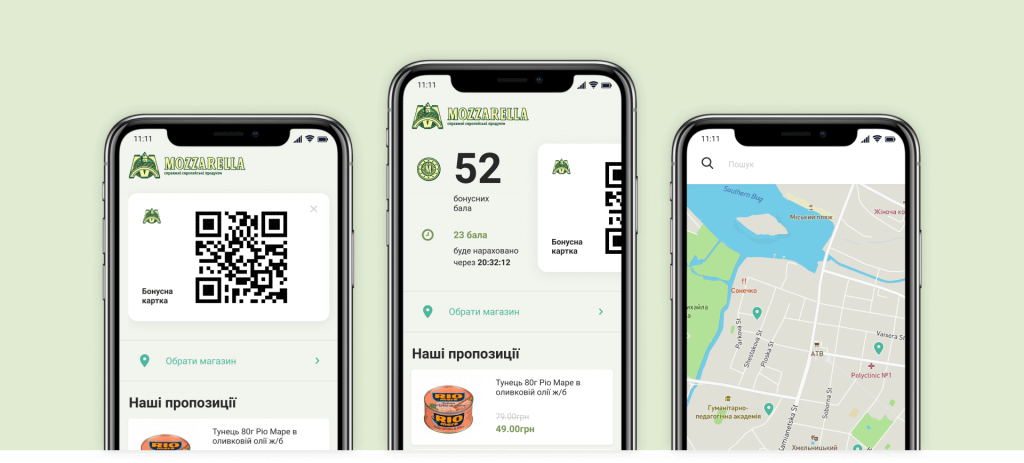
- Cafes and restaurants.
This is an opportunity to “bind” the client to the institution. You can make a contactless menu, introduce a bonus application, integrate a card, delivery, and, of course, attract new customers through existing users.
- Tourism.
A mobile guide application allows tourists or residents of a particular city to learn more about the locations, history, and events of the city. Quickly find a location using a convenient map and find out its description. You can watch the case of a mobile application that serves as a guide to the sights of the city of Khmelnitsky here. 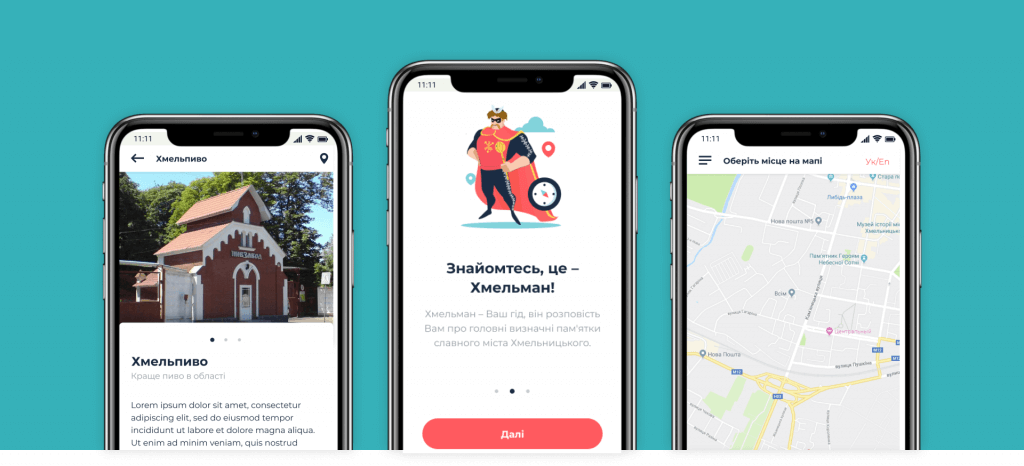
- Booking tickets.
Through the phone, you can book a ticket at any time, make a payment and not print documents, get a discount on the next ticket. The mobile application increases the sale of tickets because it is usually more convenient to buy a ticket from home than to look for ticket offices, stand in line. Our mobile application has been successfully used by one of the largest event promoters in Belarus for 3 years. See the case here. 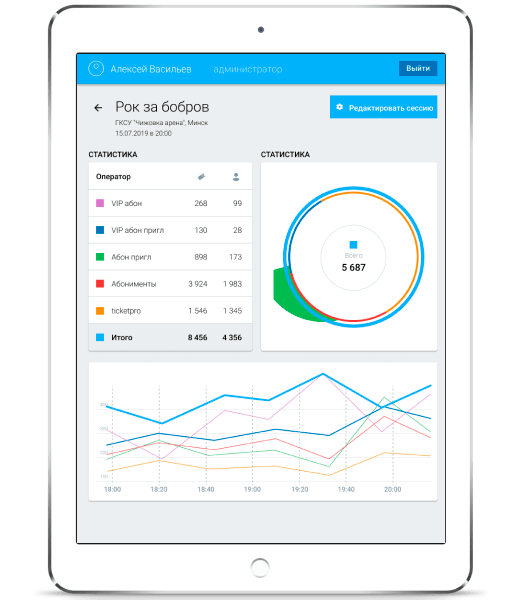
- Automation of payment for services.
This will simplify the payment process at your physical outlet. In the mobile application, you can view the history of crediting and debiting funds from your personal account, payment history, scan a QR code to pay contactless. See the case of a multi-brand mobile application for carrying out operations on different car wash networks here. 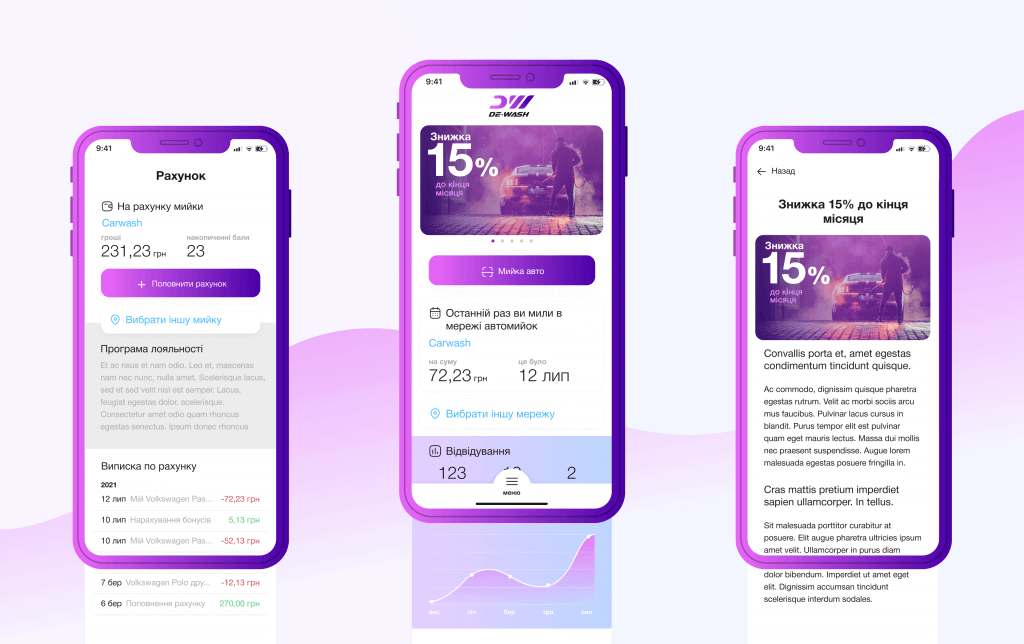
- Housing services processes, building process, real estate.
The mobile application will be able to quickly respond to the problems of users who are residents of your properties. It is possible to integrate payment systems and accounting systems so that the user can control their bills and pay utility bills through the phone. Developers have the opportunity to connect their residential complexes and keep in touch with clients at all stages of construction. View the case of a mobile application for housing and communal services management and reporting at the construction stages here. 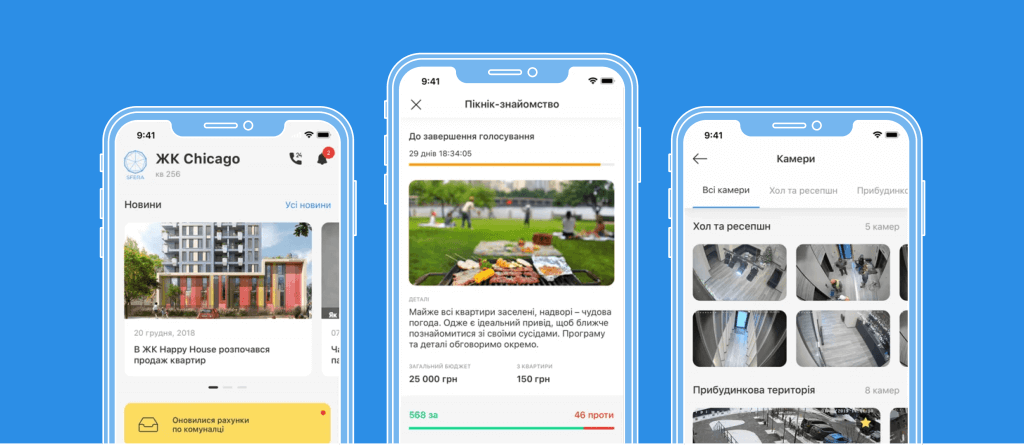
According to Statista, now people spend on average up to 3 hours a day in mobile applications on 2 main operating systems for smartphones – Android and iOS (they occupy about 95% of the entire market, the remaining 5% are Windows, Symbian and others. less popular platforms).
Which platform to choose: development of a mobile application on Android or IOS?
Mobile applications can be implemented in a programming language – on IOS it is C ++ / Objective-C, which are already fading into the background and Swift. In android devices, this is Java, Kotlin. It should be understood that if you need a mobile application for Android and IOS platforms, then you need to look for a programmer who either knows both programming languages, or 2 programmers. Developing the same application for different platforms (iOS/Android) is long and expensive. Therefore, we recommend reaching users from both platforms and using cross-platform development.
What is cross-platform mobile app development?
Cross-platform mobile application development is the development of a mobile application, which as a result will be ready to work immediately on both iOS and Android. The knowledge of a developer is enough to develop an application for iOS and Android at once. In such development, we prefer React Native technology.
What are the benefits of React Native development?
- project deployment speed,
- support for native functions of both Android / iOS systems (which is why the framework contains the “native” prefix),
- availability of project support both in terms of funds and resources.
Each project is individual, and of course, cross-platform applications are best used where a high load is not expected, for example, this applies to, for example, the banking sector. If your project assumes 3D graphics, the application must perform thousands of operations with the network in real-time mode, then it is better to use native development. In all other cases, the React Native framework is ideal for developing a mobile application. Learn more about cross-platform solution on React Native framework here.
What are the stages of mobile app development?
- Analysis of the market, the target audience of the business, the search for a problem that the application should close.
- Thinking through the basic functionality. At this stage, the user experience map is determined, that is, the user’s path in the application, a set of basic functions is compiled and how the user can interact with them, his main actions in the application.
- UI/UX design. Here the main structure of navigation in the system is created, prototypes, layouts and design of interactions with the interface are created.
- Usability – tests of prototypes and layouts. Based on the test results, the designer makes changes to the functionality.
- Creation of terms of reference for mobile application developers.
- Development of a mobile application.
- Testing, finding bugs, design re-evaluation.
- Release of a mobile application in the AppStore and PlayMarket app stores and their promotion.
Check out the following article for design tips for mobile app development.
How much does mobile app development cost?
You must consider not only the cost of developing a mobile application, but also the means of maintaining and updating it. The specific amount may differ by several thousand dollars, it all depends on the completeness of the functionality, the complexity of the design and the additional needs of the business. If you represent a development agency and you need additional resources or don’t have them at all for the project development – we are also working in outsource application development .
If you are ready to become the owner of your own mobile application, contact our managers who are always ready to advise you. Submit your application here.




